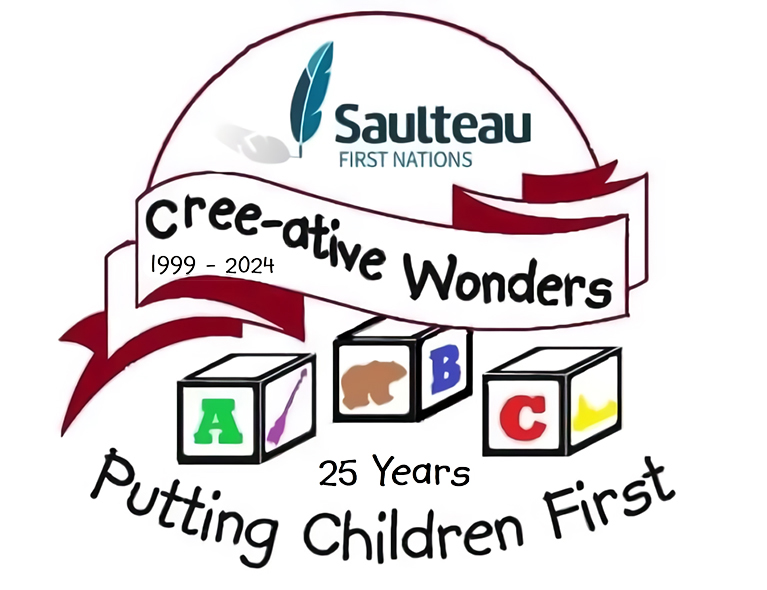We are the only center in the Chetwynd/Hudson Hope/Moberly Lake area that has separate programs for Toddlers and Preschoolers full time. We are the largest program in the area, and it has been done much through the work of Saulteau First Nations staff and leadership with funding help and guidelines from various partners. We have developed as a service and not a business where the community comes before the business. The staff try very hard to find ways to work with families while also following the required rules and regulations of our licensing and funders.
It would surprise many people to know that it costs a lot to operate the center. This has a lot to do with the licensing requirements that outlines the staff to child ratio. We have one of the best buildings in BC and are one of the top programs. The staff we have is one of the biggest reasons for this as they go above and beyond for the children.
When a parent applies for a space at the center when it is available, we have to take the time to make sure our program, current children and the new child is a right fit for the center. For this reason, we start children off participating in the morning program first and when they are ready, they can move into a full-time program.
Parents are always welcome to come to the center or visit and we recommend they stay for the first few visits. A child will move to full day as quickly as they are ready, which could be the first day or longer. Some children take a lot longer to adjust but when they are ready, we can proceed. We only adjust children 1 or 2 at a time so they can be the focus.
Our staff is not certified Special Needs Educators and currently there is no funding for extra special needs support staff. This is something we have been pushing the government to fund along with more supports and specialists for Early Intervention.
Our program does require all documents to be in the file prior to a child starting, including immunization records. We require that all staff and children be immunized to attend this program unless they can prove that they are medically unable to be immunized.
Please visit
Cree-ative Wonders Head Start on Facebook and check out our programs.

